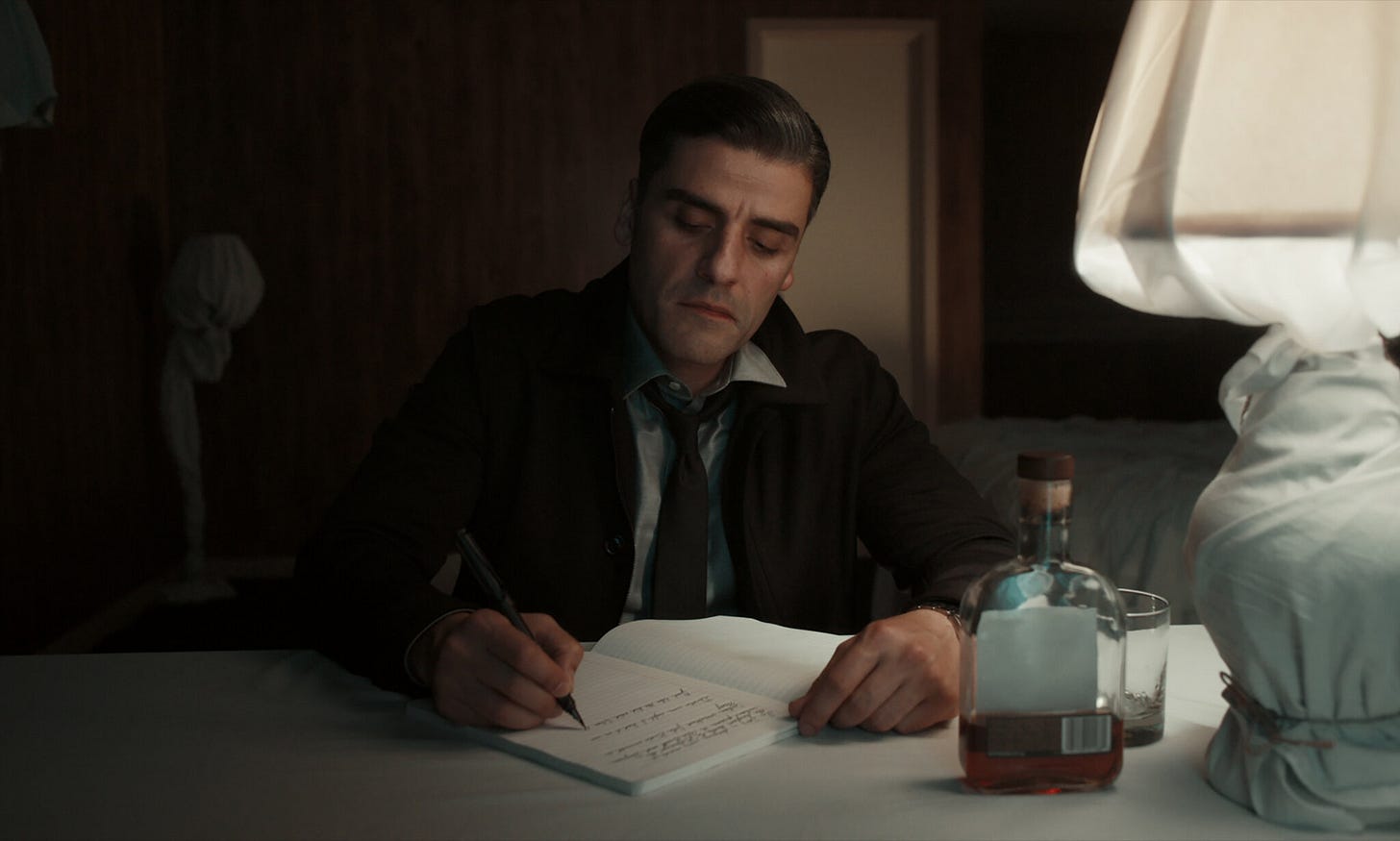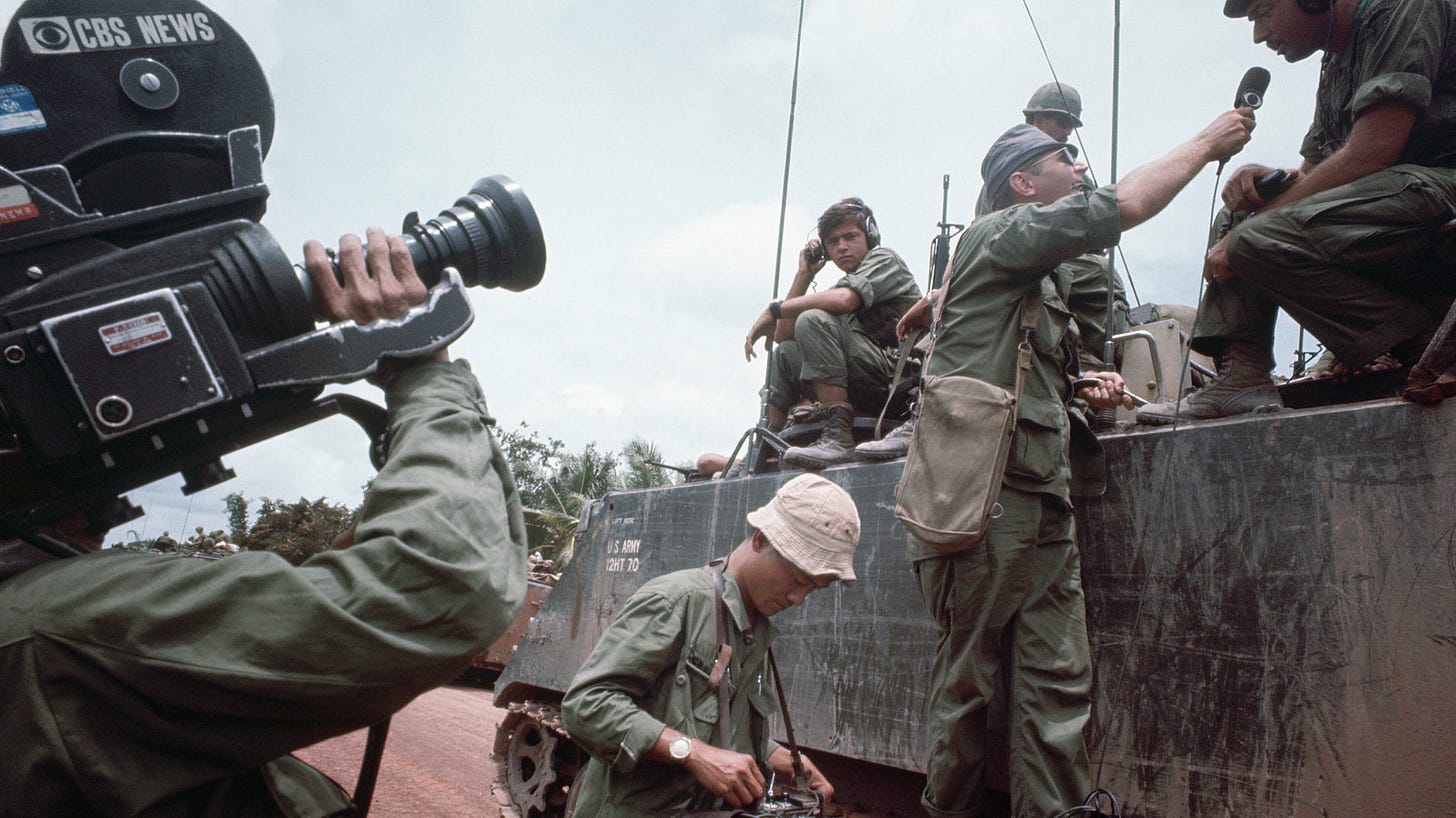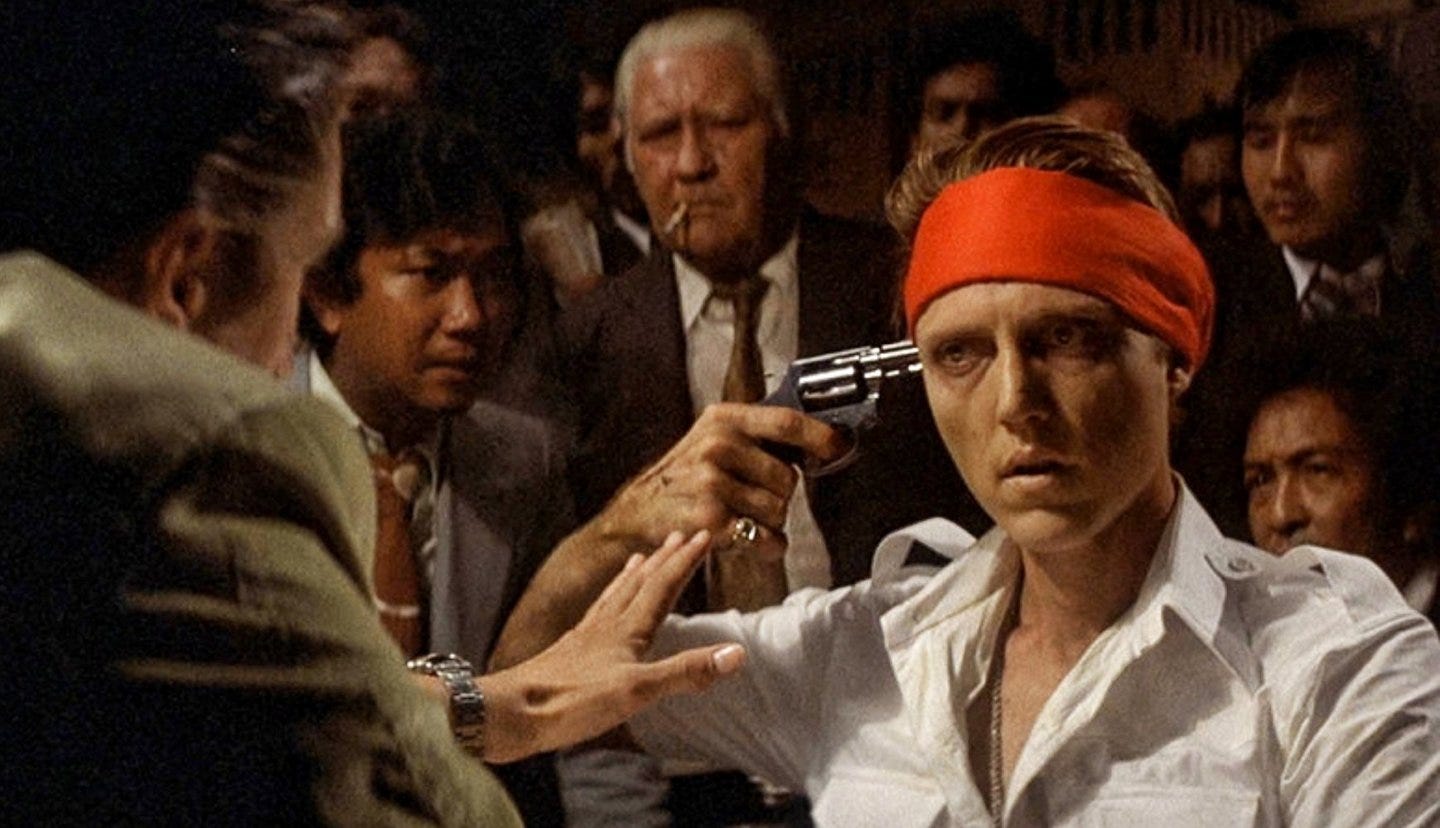Steven Spielberg once declared: “Every war movie, good or bad, is an anti war movie.”
Francois Truffaut (legendary French director) said the opposite: “Every film about war ends up being pro-war”.
So … which is it?
A24’s Piece of the Pie
A trailer recently dropped for a new A24 movie – WARFARE – about the Iraq War. I’ve seen a lot of criticism online, which is surprising because it looks like a rather straightforward American war movie. A front row seat to life as a U.S. soldier in Iraq: the existential dangers, the moral ambiguities, the commitment to (and questioning of) duty and honor. And throughout, a lot of gunfire, a lot of trauma, a lot of death.
Why the criticism? Perhaps because WARFARE is being released by A24, a name many see as synonymous with an indie/arthouse scene that resists movies like this. Perhaps because it’s about the Iraq War, hugely unpopular and only growing increasingly so.
But more than anything else, perhaps it’s this question: What makes a war movie anti-war? Does WARFARE, and other movies like it, succeed?
The Spielberg:
First, the Spielberg: war movies can be anti-war. To me, the strongest argument for this is because of the viscerality of depicting violence.
For most, war is a far-off reality, one which we read and hear about but likely won’t see upfront. If seeing is believing, then showcasing war’s realities must serve as a deterrent. Why else would TV reporting of Vietnam have amplified the anti-war movement in the U.S.? By depicting the brutality of the conflict, the senselessness of the violence suffered by both sides, viewers came to question the premise of it all.
Movies like Saving Private Ryan, Apocalypse Now, The Hurt Locker, and more, are thus anti-war because they depict this horrific violence, and viewers walk out with a greater understanding of what war really means. This is true no matter the war, whether consensus deems it as just and necessary (World War 2, for example), or senseless and tragic (Vietnam or Iraq, perhaps).
But there’s a counter-argument that Truffaut gets at, that any cinematic depiction of war serves to romanticize it. That putting war on the big screen, even the most tragic depictions of death and trauma, still serves to valorize and glorify war. Attaching a narrative, a plot, a storyline, all this creates spectacle and intrigue and entertainment (not to mention commercial value) out of tragedy. TV journalism in Vietnam differs because it exposes realities, it doesn’t recreate representations of those realities.

Part of this perspective, to me, also stems from a fundamental belief that all war is unjust (Don’t worry, I’ll be sure to solve that question in next week’s newsletter). In other words: one might argue that depicting war as bad is not truly anti-war. Instead, ‘Anti-war movies’ merely advocate for ‘good’ war.
Mass Consumption of Atrocity
David Ehrlich’s review of The Zone of Interest starts with a prelude about Holocaust cinema, which I think applies here:
Holocaust cinema has so implicitly existed in the shadow of a single question that it would no longer seem worth asking if not for the fact that it’s never been answered: How do you depict an atrocity? The most urgent and indelible examples of the form offer equally simple yet perfectly contradictory responses. Documentaries like “Shoah” and Alain Resnais’ “Night and Fog” suggest that you don’t, while historical epics like “Schindler’s List” insist that you must. If the latter argues that seeing is believing, the former maintains that seeing wouldn’t help — that some things are too unfathomable for the human eye to comprehend from a distance, and can only hope to be understood by their absence.
War movies demand a similar question. Is war so monstrous that we can only understand it by its periphery? Where it is absent?

Or is it only by seeing it up-close and personal, its stark and hollow contradictions, the havoc wreaked by it all – is this how one conveys atrocity?
Somewhere in Between:
Personally, I wouldn’t go so far as Truffaut does. I think there are war-movies that are unequivocally anti-war, and that the mere fact that they portray (and stage) simulations of the violence does not take away the searing impact they have. Films like Apocalypse Now, The Deer Hunter, and Saving Private Ryan (and I’ll admit to not being the biggest war movie guy) – they’ve all impacted me.
That said, there’s plenty of war cinema that gets it wrong. Even in their depiction of atrocity, they function as high-octane, entertaining thrillers first. There’s also the long-standing military-entertainment complex in the United States, where the Dept. of Defense works hand-in-hand with productions to supervise scripts, lease over equipment as props, and ensure accuracy and information-transfer. Can productions that take DOD money, cooperation, and supervision, truly be anti-war?
WARFARE looks to be pretty good, but it takes a lot more than death and violence to cement it as something truly anti-war. We’ll see when it releases sometime in 2025.
See you all again soon! Until then, please get in touch if you have any thoughts or suggestions you’d like to share. If you want to keep up with what I’m watching, follow me on Letterboxd @atharv_gupta.
Thanks for reading The Kino! Subscribe for free to receive new posts and support my work.






Amazing read! I liked the distinction you made between Truffaut and Spielberg. But given how subjective film interpretation is, does a director's intent to make an anti-war or pro-war film really matter (e.g. when it's "Danger Zone" playing over slow-motion gunfire in a section of an anti-war film?)
Great read